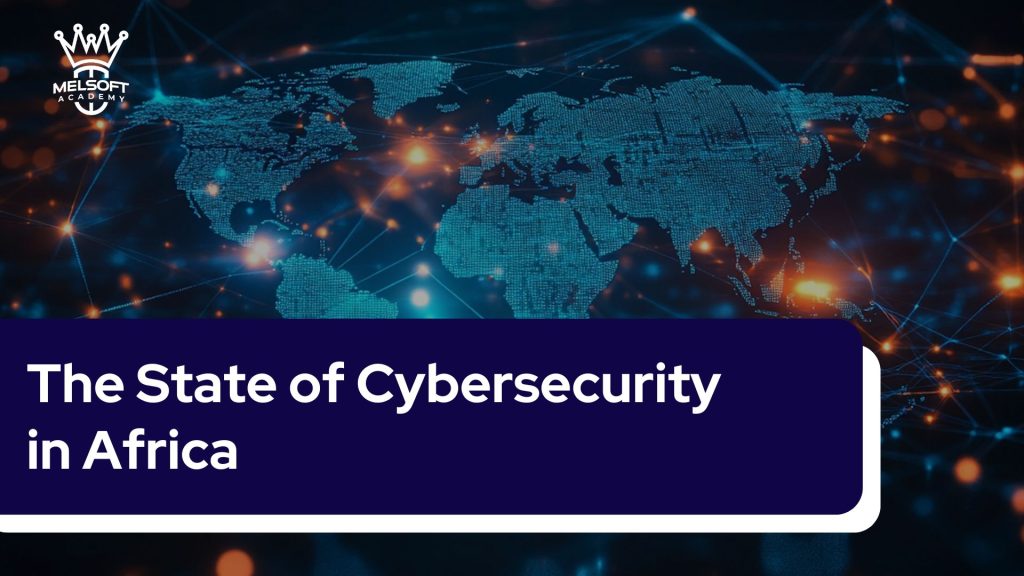Key Takeaways:
- Africa’s growing digital economy makes it a prime target for cybercriminals, resulting in annual losses exceeding $3.5 billion.
- A significant cybersecurity skills gap hinders effective defense against cyber threats. The region faces a critical shortage of cybersecurity professionals.
- Underinvestment in cybersecurity infrastructure and training programs exacerbates the existing vulnerabilities.
- A unified, continent-wide policy approach is crucial for enhancing cybersecurity readiness across diverse nations.
- Collaboration between governments, private sectors, and educational institutions is essential for building a more resilient cybersecurity ecosystem.
Introduction:
The digital transformation sweeping across Africa presents both immense opportunities and significant challenges. While increased internet and mobile penetration fuels economic growth and social progress, it also exposes the continent to a rapidly evolving landscape of cyber threats. Understanding the current state of cybersecurity in Africa is paramount for governments, businesses, and individuals alike. This comprehensive analysis delves into the multifaceted issues facing the continent, exploring the existing threats, the critical skills gap, the need for increased investment, and the vital role of education and collaboration in building a more secure digital future.
What Are the Current Cybersecurity Threats in Africa?
Africa’s burgeoning digital economy, characterized by rising internet and mobile penetration, has unfortunately made it a lucrative target for cybercriminals. The continent’s diverse technological infrastructure, coupled with varying levels of cybersecurity awareness and preparedness, creates a complex and challenging landscape.
Types of Cyber Threats:
- Phishing Attacks: These remain a prevalent threat, exploiting human error to gain access to sensitive information. Sophisticated phishing campaigns often target individuals and organizations with tailored messages designed to bypass security measures.
- Ransomware Attacks: The frequency and sophistication of ransomware attacks are escalating across the continent. Criminals deploy ransomware to encrypt critical data, demanding payment for its release. This poses a significant threat to businesses and government institutions alike, potentially leading to substantial financial losses and operational disruptions. South Africa, in particular, has experienced a notable increase in targeted ransomware attacks against specific organizations.
- Corporate Espionage: State-sponsored actors and corporate spies employ advanced techniques to infiltrate organizations and steal valuable intellectual property, trade secrets, and sensitive data. These attacks are often highly targeted and difficult to detect, posing a significant threat to national security and economic competitiveness.
- Data Breaches: The increasing reliance on digital systems makes organizations vulnerable to data breaches. These breaches can expose sensitive customer information, financial data, and other confidential details, leading to reputational damage, financial losses, and legal repercussions.
- Malware Infections: Malware, including viruses, worms, and Trojans, continues to pose a significant threat. These malicious programs can disrupt operations, steal data, and compromise system security. The lack of robust cybersecurity measures in some regions makes systems particularly vulnerable to malware infections.
- Denial-of-Service (DoS) Attacks: DoS attacks aim to disrupt online services by overwhelming systems with traffic. These attacks can cripple websites, online services, and critical infrastructure, causing significant disruption and financial losses.
The Impact of Cybercrime:
The economic consequences of cybercrime in Africa are staggering. Estimates suggest annual losses exceeding $3.5 billion due to direct cyberattacks, with additional indirect losses stemming from reputational damage, lost business opportunities, and the cost of remediation. This underscores the urgent need for comprehensive cybersecurity measures across the continent. Beyond the financial impact, cybercrime can also undermine trust in digital systems, hindering economic development and social progress.
Why Is Cybersecurity Investment Critical for Africa?
Economic Implications:
Investing in cybersecurity is not merely a technical imperative; it is an economic necessity. The African cybersecurity market is experiencing substantial growth, projected to reach significant figures in the coming years. However, this growth must be coupled with strategic investment to address existing vulnerabilities and prevent further losses from cyberattacks. A secure digital environment is crucial for attracting foreign investment, fostering innovation, and promoting economic growth.
Addressing Underinvestment:
Despite the projected growth in the cybersecurity market, many African countries still fall short of recommended spending levels on cybersecurity. This underinvestment creates a dangerous gap, leaving organizations and critical infrastructure vulnerable to attacks. Addressing this underinvestment requires a multi-pronged approach, including increased government funding, private sector investment, and international collaboration.
What Are the Major Challenges Facing Cybersecurity in Africa?
Skills Shortage:
A critical challenge is the severe shortage of skilled cybersecurity professionals. The nascent cybersecurity industry lacks sufficient homegrown talent, forcing a reliance on foreign expertise and solutions that may not be perfectly tailored to the local context. This skills gap hampers the ability to effectively defend against sophisticated cyber threats and implement robust security measures.
Fragmented Solutions:
Cybersecurity solutions across Africa are often fragmented and lack a unified, comprehensive approach. Organizations may adopt piecemeal solutions rather than integrated strategies that address their unique risks and vulnerabilities. This fragmented approach limits effectiveness and increases the risk of exploitation.
Policy Gaps:
Many African countries lack cohesive national cybersecurity policies, resulting in inconsistent levels of preparedness and response capabilities. The absence of a unifying framework complicates collaborative efforts to combat cyber threats effectively. Harmonizing policies and establishing regional cooperation is vital for enhancing overall cybersecurity resilience.
Lack of Awareness:
A significant portion of the population and even some businesses lack sufficient cybersecurity awareness. This lack of understanding makes them more susceptible to phishing attacks, malware infections, and other cyber threats. Increased public awareness campaigns are essential to promote responsible online behavior and improve overall cybersecurity posture.
Infrastructure Limitations:
Inadequate infrastructure in some regions limits the ability to implement and maintain robust cybersecurity measures. This includes limited access to reliable internet connectivity, outdated technology, and a lack of resources to invest in modern security solutions.
Socioeconomic Factors:
Socioeconomic difficulties in some regions divert national priorities and slow the pace of digital evolution. This creates a challenging environment for cybersecurity initiatives, as resources may be allocated to more immediate needs.
How Can Africa Strengthen Its Cybersecurity Framework?
Implementing a Rapid Action Cybersecurity Framework:
Adopting a comprehensive framework, such as Kearney’s Rapid Action Cybersecurity (RAC) Framework, can provide a structured approach to harmonize efforts across countries. This framework addresses gaps in strategy, policy, legislation, governance, and capabilities, providing a roadmap for improvement.
Elevating Cybersecurity on National Agendas:
Cybersecurity must be a top priority at both national and regional levels. This includes establishing coordination platforms for multilateral agreements that promote “cybersafe” trading partnerships among African nations. Integrating cybersecurity into national development plans is crucial for ensuring sustained investment and progress.
Fortifying Ecosystems Through Collaboration:
Building a culture of sharing threat intelligence is crucial for improving overall cyber resilience. Public-private partnerships can facilitate knowledge exchange and enhance collective defense mechanisms across industries. Collaboration between government agencies, private sector organizations, and academic institutions is essential for developing effective cybersecurity strategies.
What Role Does Education Play in Cybersecurity?
Developing Future Professionals:
Investing in education and training programs is essential for cultivating the next generation of cybersecurity professionals. Initiatives aimed at upskilling current IT personnel can also help bridge the skills gap. This includes establishing specialized cybersecurity degree programs, vocational training initiatives, and ongoing professional development opportunities.
Promoting Awareness:
Raising awareness about cybersecurity risks among businesses and individuals can foster a proactive approach to security measures. Educational campaigns can help demystify cyber threats and encourage better practices. This includes public awareness campaigns, targeted training programs for businesses, and educational resources for individuals.
Cybersecurity Rankings and Legislation:
While challenges persist, there are some positive developments. Some African nations have improved their cybersecurity rankings, demonstrating progress in strengthening their defenses. The adoption of cybersecurity legislation, although not universal, shows a commitment to addressing the issue at a policy level. The African Union Convention on Cybersecurity and Personal Data Protection (Malabo Convention) provides a framework for regional cooperation, but its implementation requires sustained effort.
The Cybersecurity Market in Africa:
The African cybersecurity market is projected to experience significant growth, indicating increasing recognition of the need for robust security measures. This growth presents opportunities for investment in cybersecurity infrastructure, services, and talent development.
Conclusion
As Africa continues its digital journey, addressing cybersecurity challenges must be a collective priority for governments, businesses, and individuals. By investing strategically in cybersecurity measures, fostering collaboration across sectors, and prioritizing education and awareness initiatives, Africa can build a resilient digital ecosystem capable of withstanding evolving threats.
Final Thoughts:
The path forward requires not only investment but also a commitment to fostering a culture of security that permeates every level of society. This includes promoting cybersecurity awareness, investing in education and training, and implementing robust cybersecurity policies and regulations. By embracing these strategies and working collaboratively towards a common goal, Africa can position itself as a leader in global cybersecurity resilience. This requires a sustained and coordinated effort from all stakeholders, including governments, businesses, educational institutions, and individuals.
Take the first step towards your dream job!
Apply Now
FAQ Section:
- What are the biggest cybersecurity threats facing businesses in Africa? The biggest threats include ransomware attacks, phishing scams, data breaches, and corporate espionage. These attacks can lead to significant financial losses, reputational damage, and operational disruptions.
- How can I improve my cybersecurity awareness? Stay informed about the latest threats, practice safe browsing habits, use strong passwords, and keep your software updated. Consider taking online cybersecurity awareness training courses.
- What is the role of the African Union Convention on Cybersecurity and Personal Data Protection? The Malabo Convention aims to harmonize cybersecurity policies and regulations across African nations, promoting regional cooperation and enhancing cybersecurity resilience.
- What are the key skills needed for a cybersecurity career in Africa? In-demand skills include network security, ethical hacking, incident response, security auditing, and cloud security. Certifications like CompTIA Security+ and Linux certifications are highly valued.
- How can governments in Africa improve their cybersecurity infrastructure? Governments can invest in cybersecurity training programs, develop national cybersecurity strategies, and promote public-private partnerships to enhance cybersecurity capabilities.
- What is the projected growth of the African cybersecurity market? The African cybersecurity market is experiencing significant growth and is projected to reach substantial figures in the coming years.
- Where can I find cybersecurity training in Africa? Melsoft Academy offers comprehensive cybersecurity bootcamps and courses designed to equip individuals with the skills needed for successful careers in the field.


